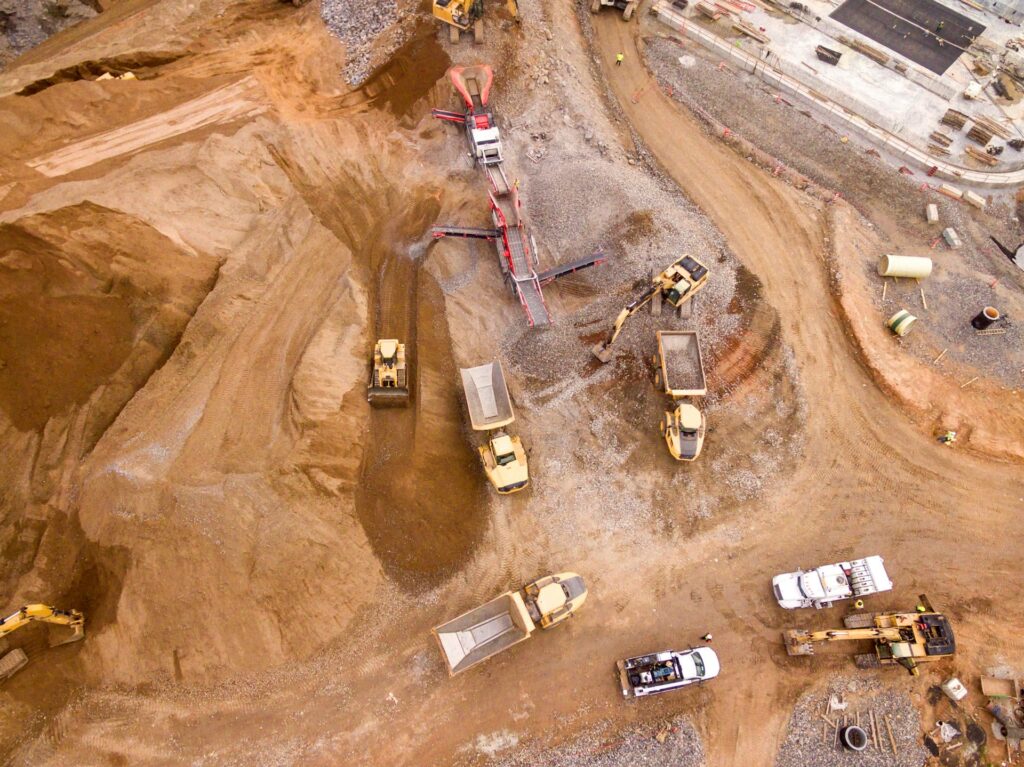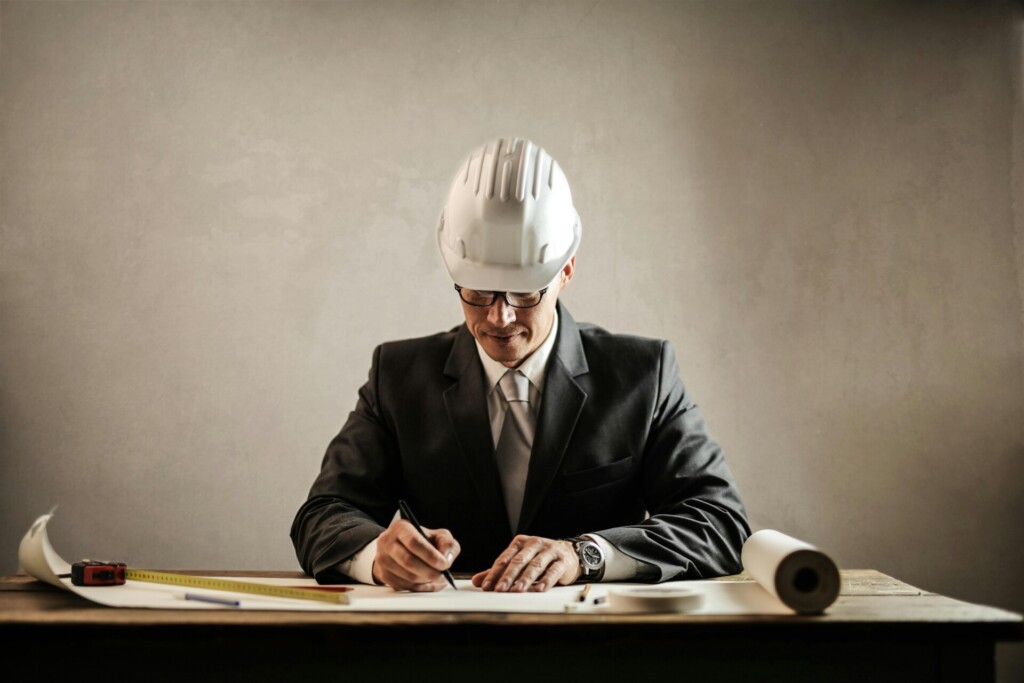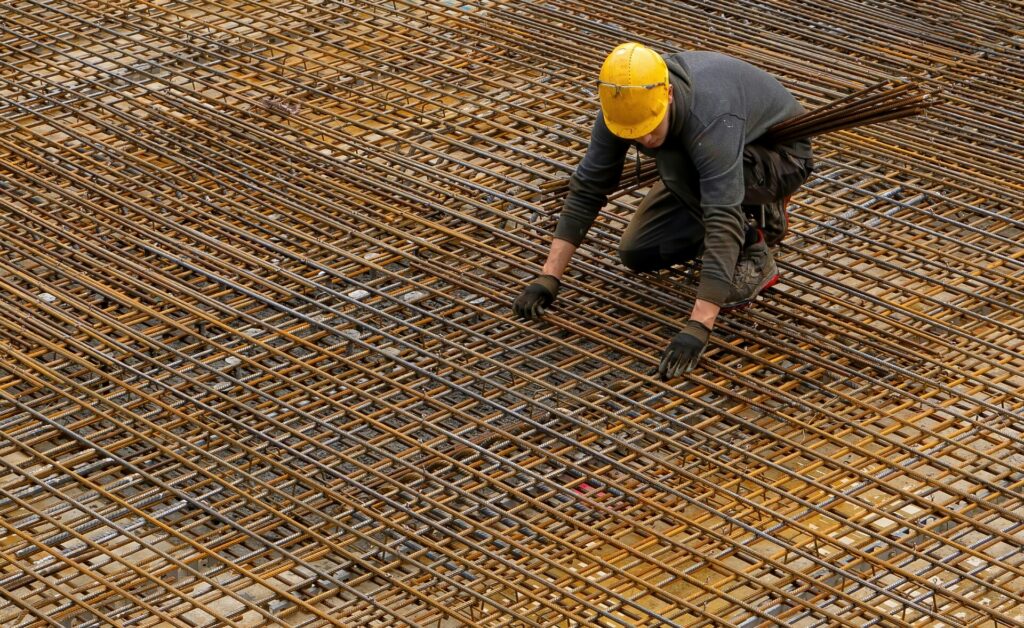Complex projects demand a general contractor for complex projects who can orchestrate multiple moving parts simultaneously. The construction industry saw a 12% increase in multi-million dollar projects in 2023, pushing demand for contractors capable of managing sophisticated build requirements.
We coordinate people, processes, and sophisticated technologies from initial planning through final delivery. As a turn-key builder with specialized interior capabilities, we bring technical knowledge and resourcefulness to every project phase while maintaining focus on client objectives and stakeholder alignment throughout the construction lifecycle.
Which Core Services Support Complex Construction From Preconstruction To Closeout?

We organize our services around the construction lifecycle to create maximum value for clients. Each phase requires specific capabilities that work together to deliver complex projects successfully. Our approach integrates proven methods with specialized expertise to handle sophisticated requirements.
Preconstruction Services
Preconstruction builds the right plan early in the project timeline. We collaborate with design teams and stakeholders to refine initial concepts into buildable solutions. This phase involves design development, cost estimating, and constructability reviews that identify potential issues before they impact the schedule.
Our preconstruction process transforms broad concepts into detailed execution plans. We analyze site conditions, evaluate construction methods, and develop realistic budgets and schedules. Preconstruction activities encompass design development, contractor selection, risk analysis, and project scheduling that establish the foundation for successful project delivery.
Construction And Project Management
Construction management and project management guide execution once fieldwork begins. We coordinate trades, manage schedules, and maintain quality standards throughout the building process. Our project managers oversee daily operations while construction managers focus on technical delivery and safety compliance.
These management functions ensure resources align with project goals. We monitor progress against established benchmarks and adjust workflows to maintain momentum. Our teams communicate regularly with all stakeholders to keep everyone informed of developments and decisions that affect project outcomes.
Lean Construction Methods
Lean construction streamlines work and reduces waste across all project phases. We apply lean principles to eliminate inefficiencies and improve workflow reliability. This approach focuses on value creation while minimizing activities that do not contribute directly to client objectives.
Our lean methods include pull planning, continuous improvement, and visual management systems. We coordinate with trade partners to establish reliable work sequences and identify bottlenecks before they cause delays. This systematic approach drives consistent progress and better project outcomes.
Specialized Technical Services
Additional expertise supports complex project requirements beyond standard construction activities. We provide an accelerated payment program to improve cash flow for subcontractors and suppliers. Our fabrication shop capabilities allow for custom components and controlled manufacturing environments.
Insurance and surety services address risk transfer and bonding requirements. Offsite manufacturing improves quality control and can accelerate project schedules for appropriate building systems. Risk management processes identify potential issues and establish mitigation strategies before problems develop.
Self-perform operations give us direct control of critical work scopes like concrete, steel erection, or mechanical systems. Supply chain management stabilizes procurement and logistics to ensure materials and equipment arrive when needed. Our engineering services and technical services teams improve constructability and resolve complex design challenges.
Virtual Design And Construction (VDC/BIM)
Virtual design and construction supports coordination and clash avoidance throughout the project lifecycle. We use BIM modeling to visualize complex building systems and identify conflicts before construction begins. This technology enables better collaboration between design teams, contractors, and stakeholders.
VDC processes include 3D modeling, 4D scheduling, and 5D cost analysis that integrate project data across multiple dimensions. We leverage these digital tools to simulate construction sequences, optimize logistics planning, and improve decision-making. The visual nature of BIM helps all project participants understand design intent and construction methods more clearly.
How Are Risk, Cost, And Schedule Managed On Complex Projects?
We approach risk management through systematic controls that address potential issues before they disrupt project flow. This proactive framework identifies threats during design and preconstruction phases, when solutions cost significantly less than field corrections. We establish control measures, monitor emerging risks, and implement response protocols that keep complex projects moving forward.
Supply chain management forms the backbone of our procurement and logistics strategy. We develop supplier relationships early, secure material commitments during preconstruction, and coordinate deliveries to match construction sequencing. This approach reduces material shortages, price volatility, and schedule disruptions that commonly affect large-scale projects.
Self-perform operations give us direct control over critical work scopes where quality, schedule, or specialized expertise matter most. Rather than relying entirely on subcontractors for sensitive installations, we maintain internal crews for activities like complex MEP coordination, specialized interior systems, or mission-critical infrastructure. This control reduces coordination complexity and ensures accountability for key project elements.
Offsite manufacturing shifts fabrication work to controlled environments where quality and productivity improve. We coordinate with fabrication partners to pre-assemble building components, mechanical systems, and architectural elements before site delivery. This manufacturing approach reduces field labor requirements, minimizes weather delays, and often accelerates overall project schedules while improving final quality.
Lean construction principles drive reliable workflow and eliminate waste throughout the construction process. We implement pull planning, just-in-time delivery, and continuous improvement practices that optimize resource flow. These methods reduce inventory costs, minimize rework, and create predictable work sequences that support both cost control and schedule reliability.
VDC/BIM technology supports coordination and clash avoidance across all building systems. We develop detailed digital models that integrate architectural, structural, and MEP elements, allowing our teams to identify and resolve conflicts before construction begins. This coordination process prevents costly field changes and supports accurate material quantification and scheduling. The technology also enables better communication with stakeholders through visual project representations.
Engineering and technical services improve constructability by analyzing designs for practical field implementation. Our technical teams review drawings, specifications, and construction sequences to identify potential installation challenges, suggest value engineering alternatives, and optimize building system performance. This constructability review process reduces change orders and supports smoother project execution.
Insurance and surety tools address risk transfer and financial protection requirements. We structure appropriate coverage for project-specific risks, coordinate bonding requirements, and work with insurance partners to address unique exposures that complex projects often present. These financial instruments protect both our clients and our operations while supporting project financing and contractual requirements.
Close collaboration with clients and stakeholders ensures that project goals remain clear and decisions happen on schedule. We maintain regular communication protocols, provide transparent project reporting, and facilitate decision-making processes that keep complex projects aligned with original objectives. This stakeholder engagement approach prevents scope drift and supports timely resolution of issues that could otherwise impact cost, schedule, or quality outcomes.
Which Market Sectors Commonly Require A General Contractor For Complex Projects?

We operate across major construction sectors that demand sophisticated project management and specialized expertise. Healthcare construction represents one of our primary markets, where we coordinate complex systems integration and maintain strict regulatory compliance. Education facilities require careful phasing to minimize disruption to operations while meeting evolving technology standards.
Commercial projects encompass office buildings, retail developments, and mixed-use spaces where we balance aesthetic requirements with functional efficiency. Aviation projects present unique challenges with security protocols and operational continuity during construction at active facilities.
Specialized Facility Types
Green building projects require deep knowledge of sustainable systems and certification processes. We coordinate energy-efficient mechanical systems, renewable energy integration, and waste reduction strategies throughout construction. Sports facilities demand precise scheduling coordination and specialized construction techniques for complex structures like stadiums and arenas.
Pharmaceutical projects involve stringent contamination controls and specialized clean room environments. These facilities require extensive coordination between mechanical, electrical, and process systems to meet FDA compliance standards.
Infrastructure And Cultural Venues
Transportation hubs such as airports, rail terminals, and transit centers require careful coordination with operational schedules and security requirements. We manage phased construction to maintain continuous facility operations while integrating complex passenger flow systems.
Cultural venues including museums, theaters, and entertainment complexes demand specialized acoustic considerations and custom architectural features. These projects often involve historic preservation requirements and community stakeholder coordination.
Retail spaces require rapid construction timelines and careful tenant coordination during occupied building renovations. Large building repositioning projects combine structural modifications with systems upgrades while maintaining partial occupancy throughout construction phases.
What Practices Help Ensure Safety, Quality, And Collaboration On Complex Jobs?
Complex construction projects require comprehensive practices that build trust, drive performance, and deliver results. We implement systematic approaches that address jobsite culture, team dynamics, and operational excellence across every phase of construction.
Safety And Wellness Programs Drive Jobsite Culture
Safety programs establish the foundation for all construction activities. We develop site-specific safety plans that address unique project hazards, from fall protection systems in high-rise construction to confined space protocols in industrial facilities. Regular safety training keeps crews current on OSHA standards and emerging best practices.
Wellness programs support worker health beyond basic safety compliance. These initiatives address physical demands, mental health resources, and injury prevention strategies. According to OSHA data, construction accounts for over 1,000 workplace fatalities annually, making comprehensive safety programs essential for protecting crews and maintaining project continuity.
Daily safety briefings and toolbox talks keep hazard awareness front and center. We document incidents and near-misses to identify trends and adjust protocols accordingly. This proactive approach builds a culture where safety becomes second nature rather than an afterthought.
Ethics And Compliance Support Project Accountability
Ethics programs establish clear expectations for conduct, decision-making, and professional standards. We maintain compliance frameworks that address regulatory requirements, contractual obligations, and industry standards. These processes ensure accountability across all project stakeholders.
Regular compliance audits verify adherence to established procedures and identify areas for improvement. Clear escalation procedures handle ethical concerns and compliance violations promptly. Training programs keep staff informed about regulatory changes and ethical expectations.
Transparent reporting systems encourage workers to raise concerns without fear of retaliation. This approach builds trust and ensures issues surface early when they can be addressed effectively rather than becoming major problems later.
Environmental Sustainability And Resiliency Guide Responsible Delivery
Sustainability practices reduce environmental impact while often providing cost benefits. We implement waste reduction programs, energy-efficient construction methods, and sustainable material sourcing. These approaches align with client sustainability goals and regulatory requirements.
Resiliency planning addresses long-term performance and climate considerations. Projects incorporate design elements that withstand extreme weather events, reduce resource consumption, and support community resilience. Water management systems, energy-efficient building envelopes, and durable material selections contribute to project longevity.
Green building certifications like LEED provide frameworks for measuring and documenting sustainability performance. We track metrics throughout construction to ensure sustainability targets are met and maintained.
Community And Citizenship Connect Projects With Local Needs
Community engagement programs build relationships with local stakeholders and address project impacts on surrounding neighborhoods. We participate in local hiring initiatives, support community organizations, and minimize construction disruptions through careful scheduling and communication.
Citizenship efforts extend beyond individual projects to support broader community development. These initiatives might include workforce development programs, local supplier partnerships, and infrastructure improvements that benefit the wider community.
Regular community meetings keep stakeholders informed about project progress and address concerns promptly. This collaborative approach helps projects proceed smoothly while building positive relationships for future work.
Diversity, Equity, And Inclusion Strengthen Teams And Problem-Solving
Diverse teams bring varied perspectives that enhance problem-solving and innovation. We implement hiring practices that promote diversity across all skill levels and project roles. Inclusive workplace policies ensure all team members can contribute effectively.
Training programs address unconscious bias, cultural competency, and inclusive leadership practices. These efforts create environments where diverse viewpoints are valued and utilized. Research shows diverse teams often outperform homogeneous groups in complex problem-solving scenarios.
Mentorship programs support career development for underrepresented groups. Clear advancement pathways and skills development opportunities help build a diverse pipeline of construction professionals for future projects.
Innovation And Learning Support Specialized Operations
Continuous learning programs keep staff current with emerging technologies, construction methods, and industry best practices. We invest in training for specialized operations like advanced building systems, automation technologies, and sustainable construction techniques.
Innovation initiatives encourage creative problem-solving and process improvements. Teams pilot new technologies, test alternative methods, and share lessons learned across projects. This approach helps us adapt to rapidly evolving construction technologies and client expectations.
Knowledge management systems capture and share expertise across project teams. Regular technical workshops and cross-training sessions ensure specialized knowledge spreads throughout the organization rather than remaining siloed with individual experts.
Partnership Mindset Maintains Client Alignment
Collaborative relationships with clients and stakeholders drive project success. We establish clear communication protocols, regular progress updates, and joint problem-solving processes. This partnership approach ensures decisions align with client objectives throughout the construction process.
Early involvement in project planning helps identify potential challenges and optimize solutions before construction begins. Regular stakeholder meetings maintain alignment on goals, schedules, and quality expectations. Transparent reporting builds trust and enables proactive decision-making.
Change management processes handle project modifications efficiently while maintaining quality and schedule performance. Clear documentation and approval procedures ensure all parties understand scope changes and their implications.
Conclusion and Next Steps

Complex construction projects require a general contractor who can orchestrate multiple moving parts while maintaining control over quality, cost, and schedule. We’ve seen how effective project delivery depends on coordinated preconstruction planning, robust risk management systems, and seamless collaboration between all stakeholders. At EB3 Construction, we bring this comprehensive approach to every project, integrating lean construction methods with VDC/BIM technology to deliver predictable outcomes across the full project lifecycle.
Your next steps should focus on three critical areas that set successful projects apart. First, align project goals and expectations during preconstruction when changes are most cost-effective to implement. Second, establish clear risk management protocols and supply chain strategies that can adapt to changing conditions without derailing timelines. Finally, evaluate where self-perform operations or offsite manufacturing can add the most value to your specific project requirements.
Moving forward successfully requires maintaining open communication channels with all stakeholders throughout the process. Contact EB3 Construction to discuss how our specialized expertise can support your complex project goals.




